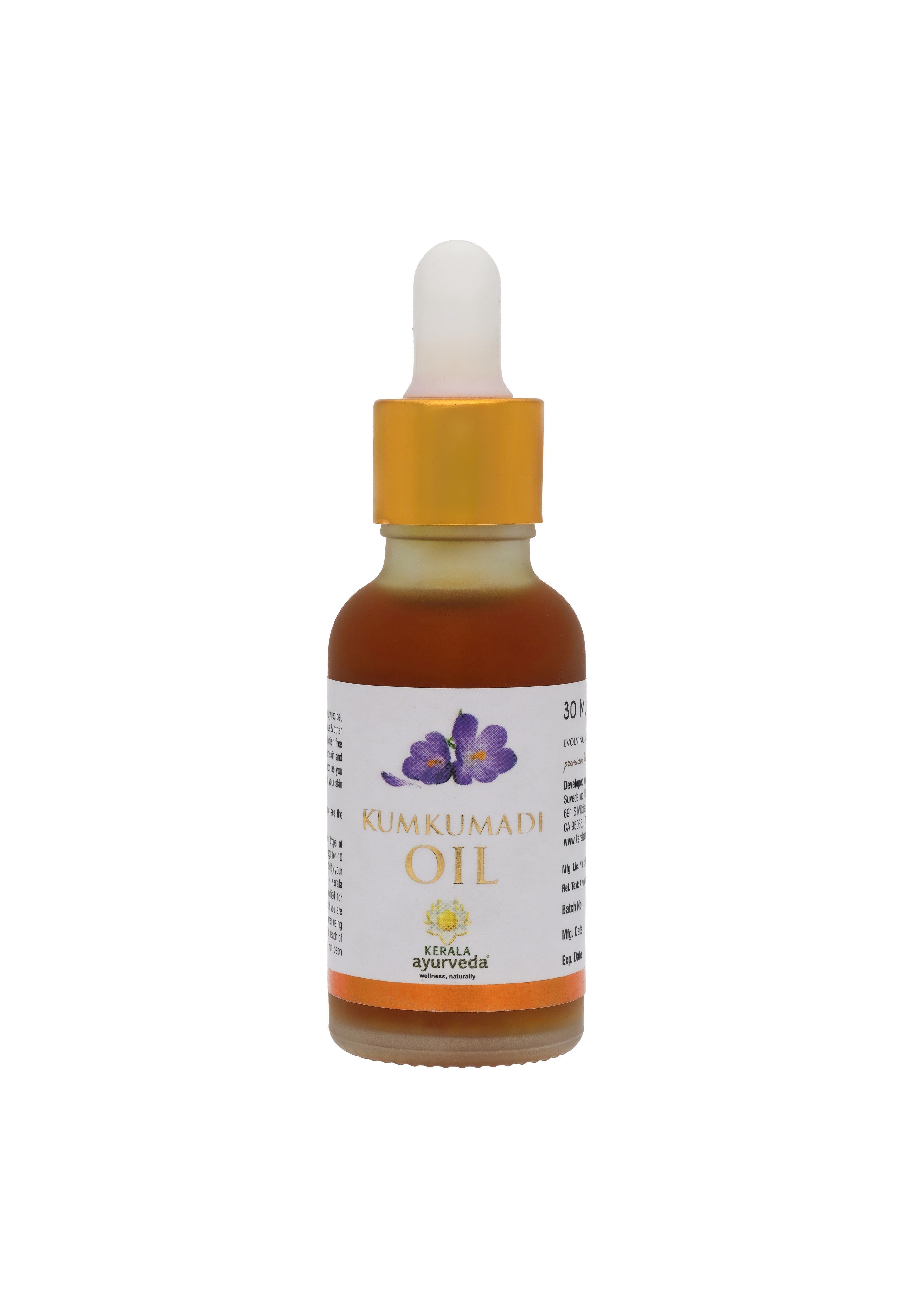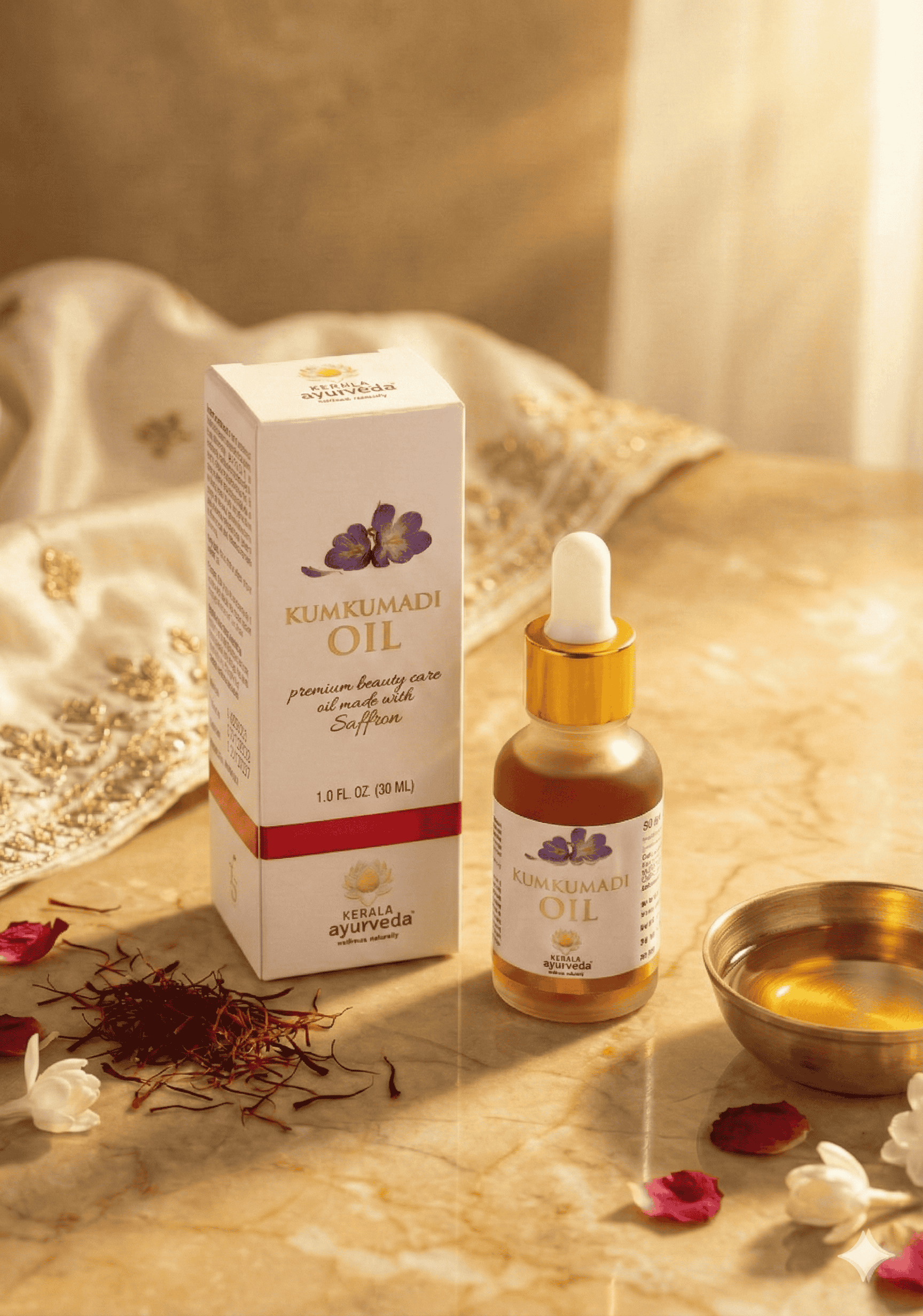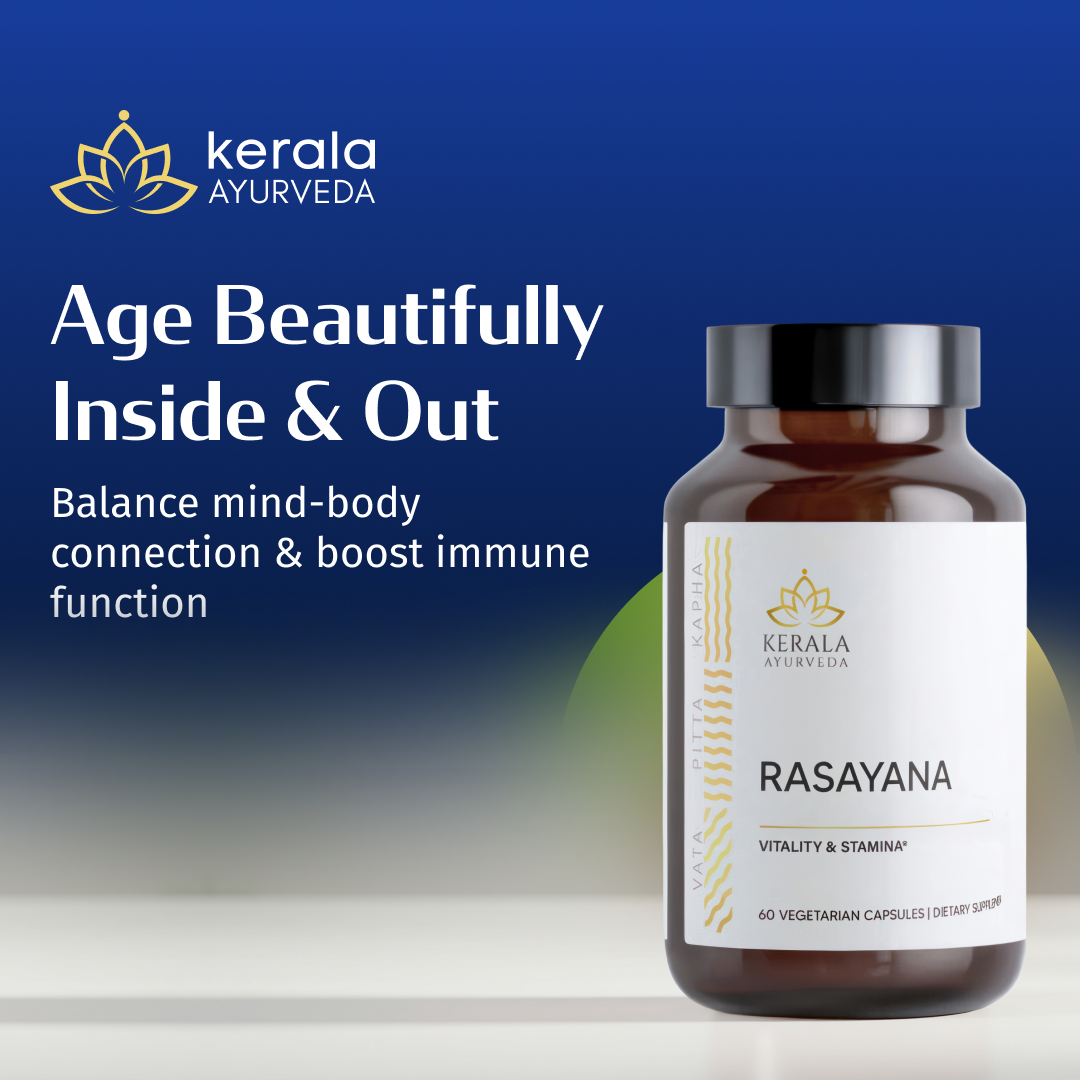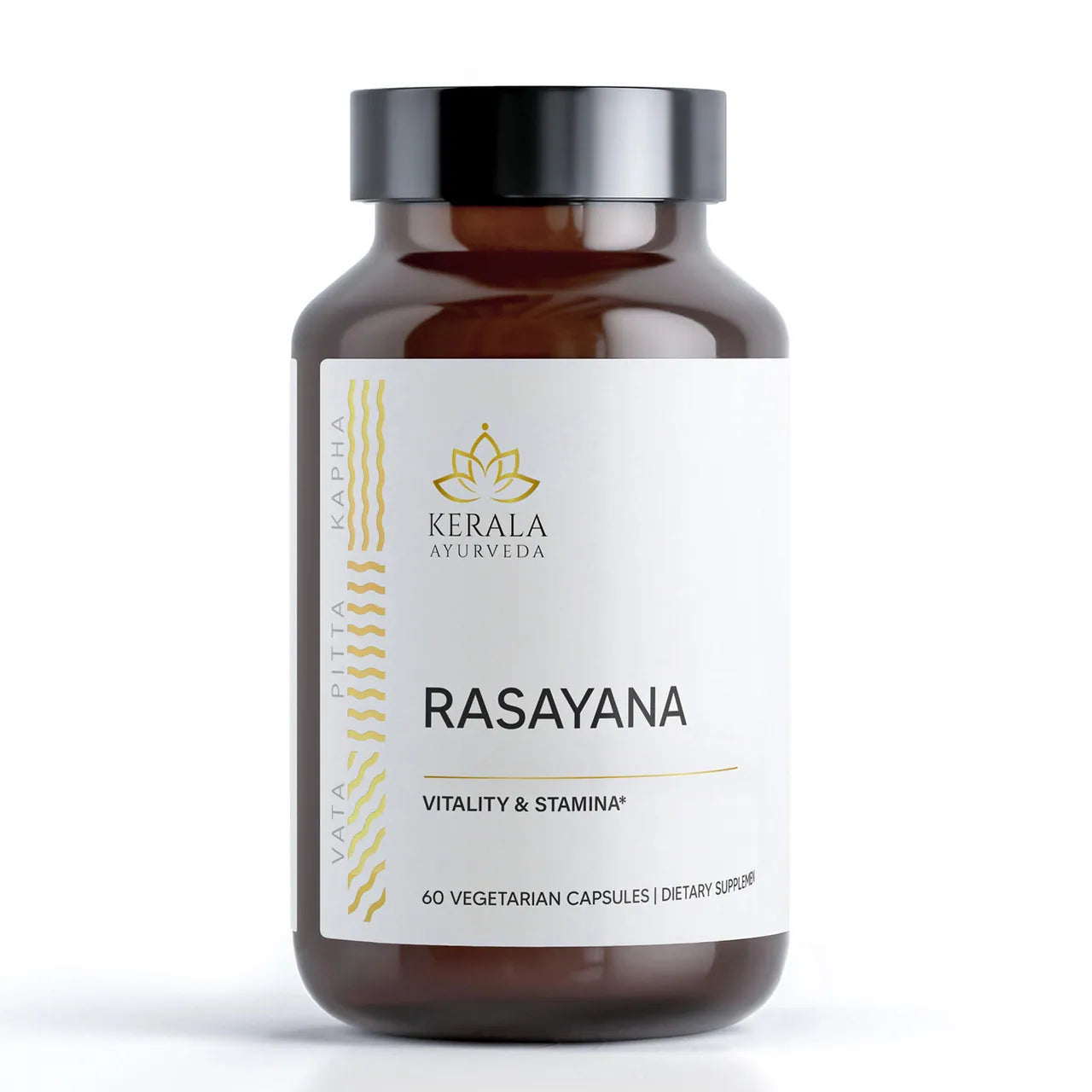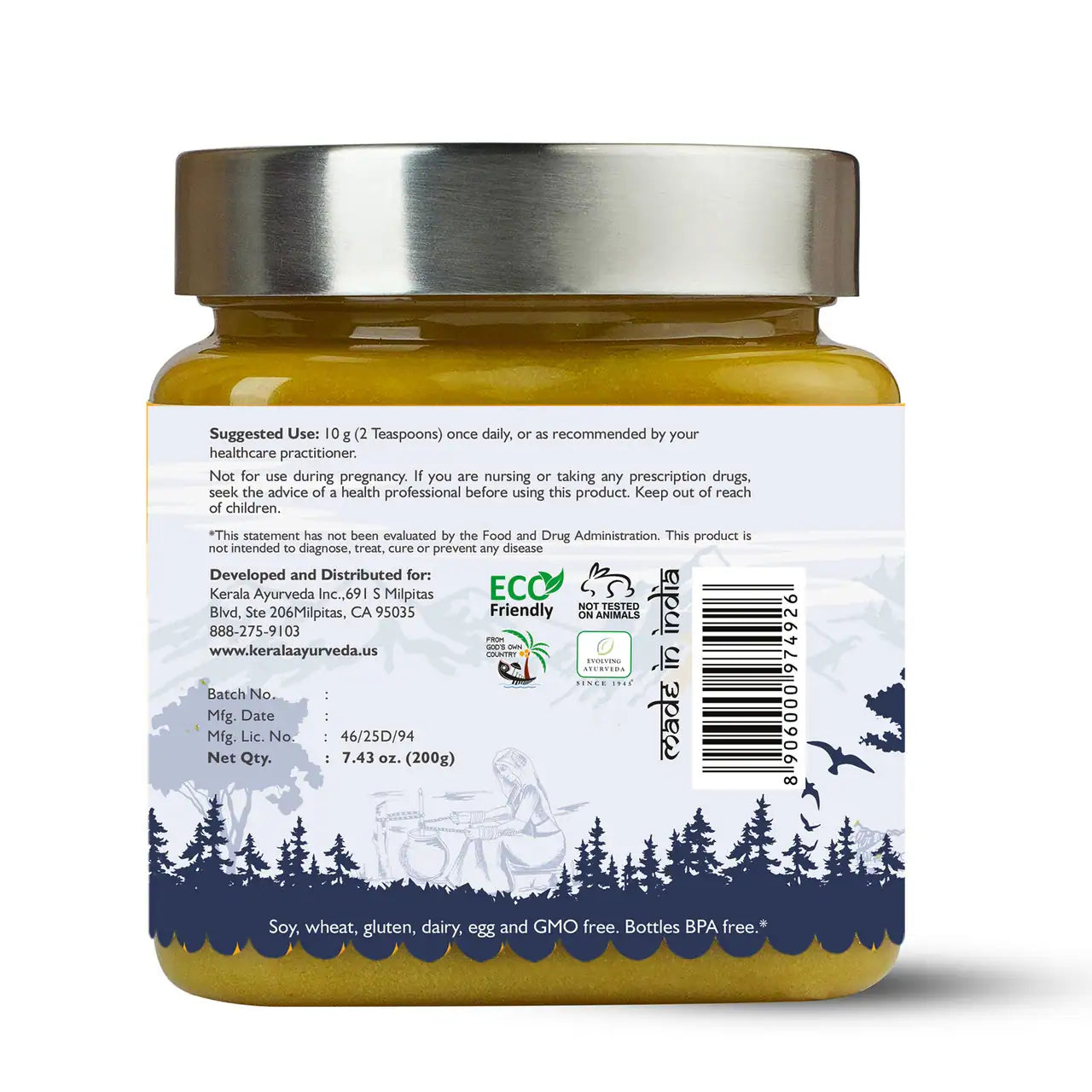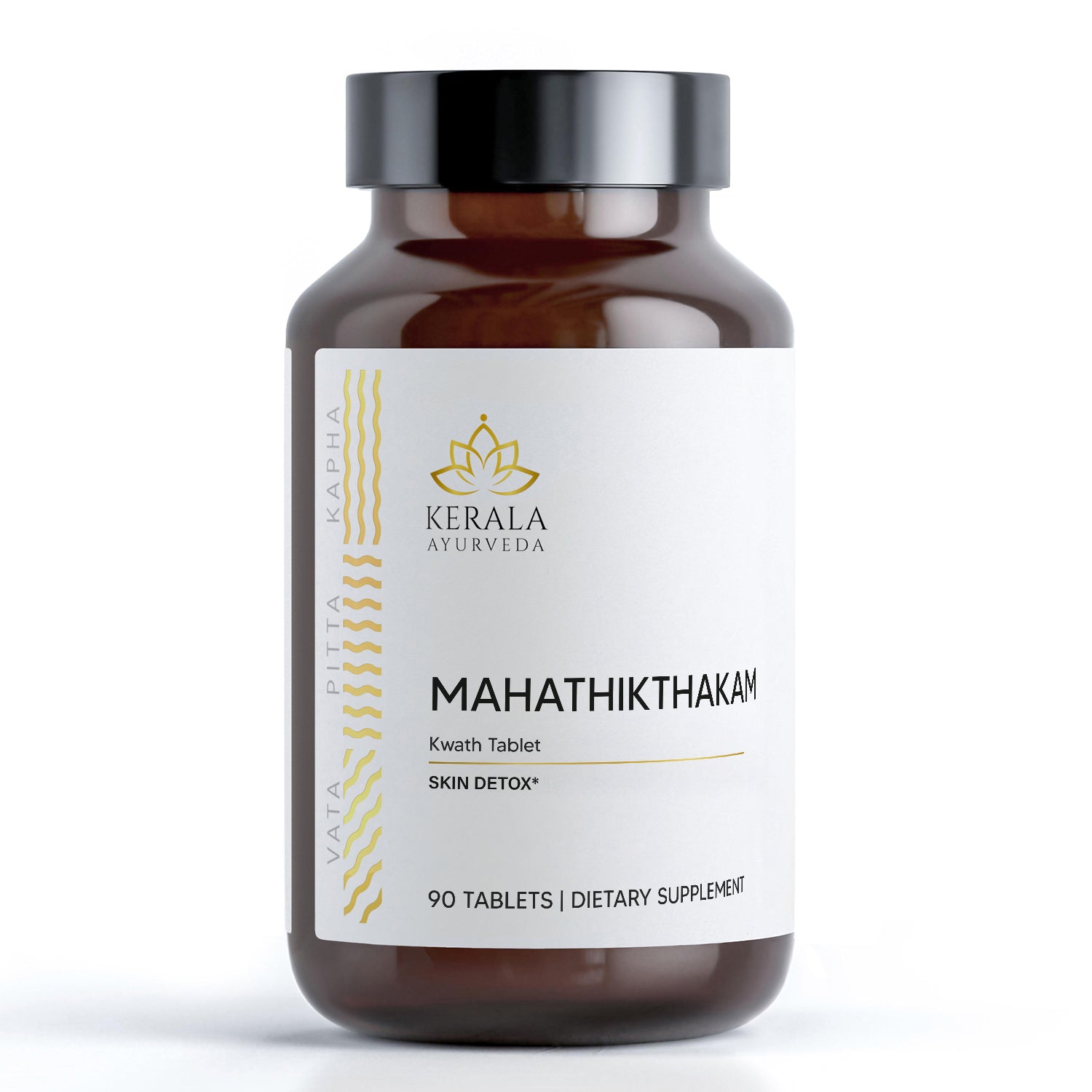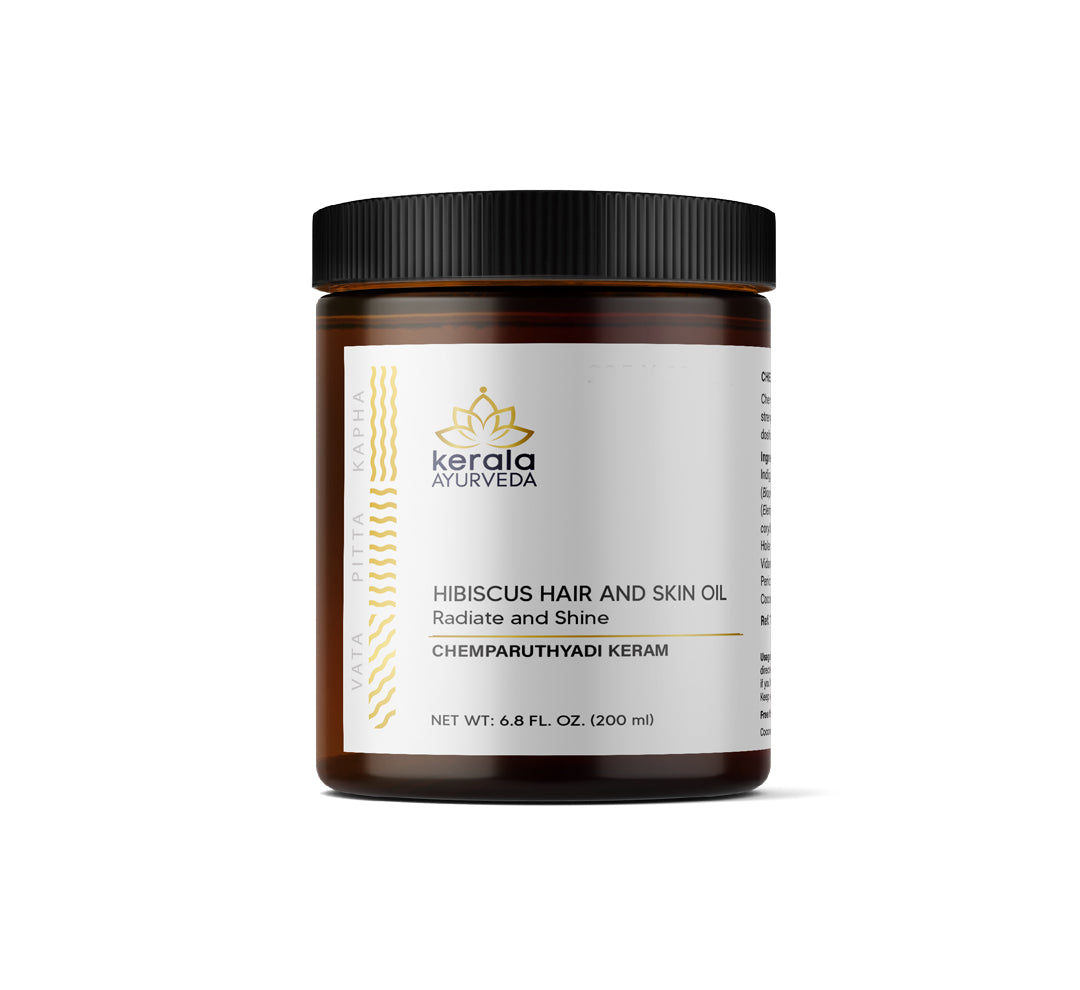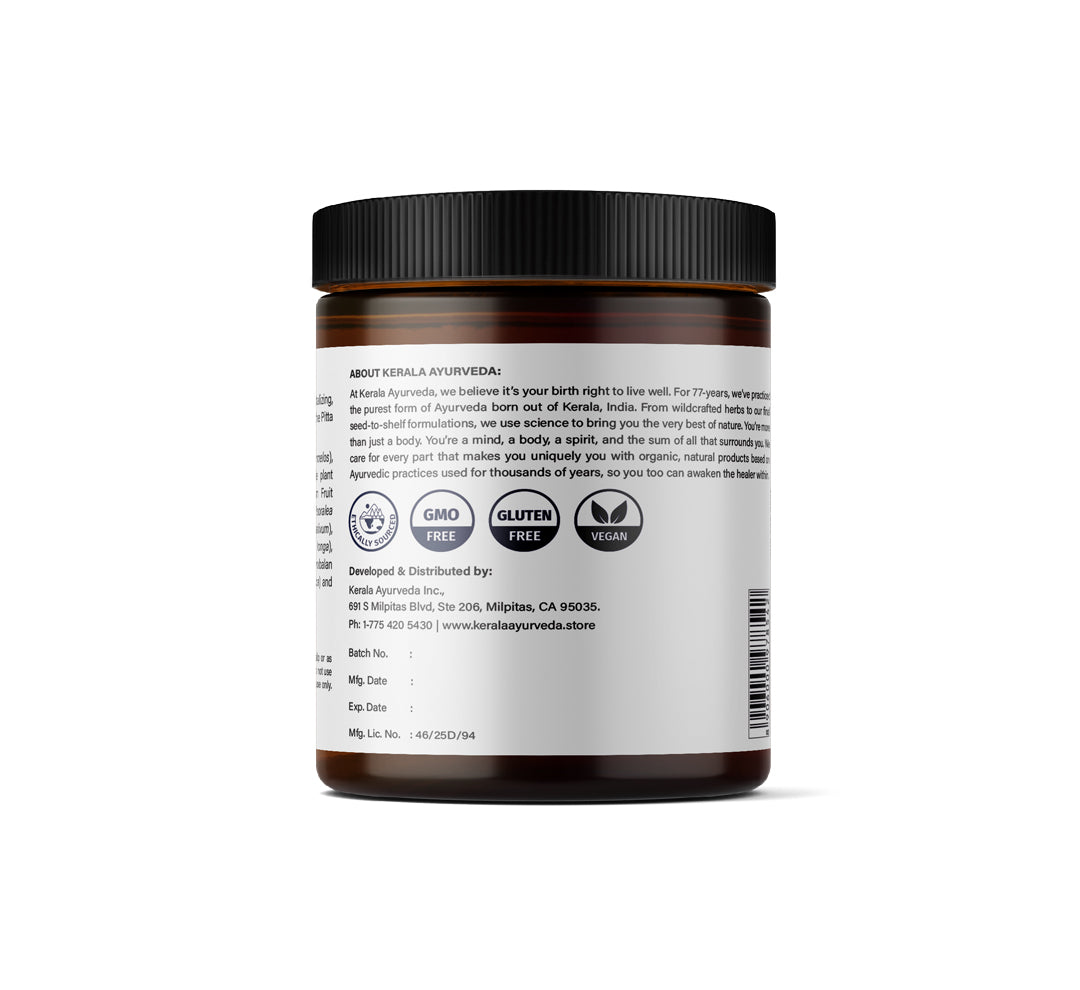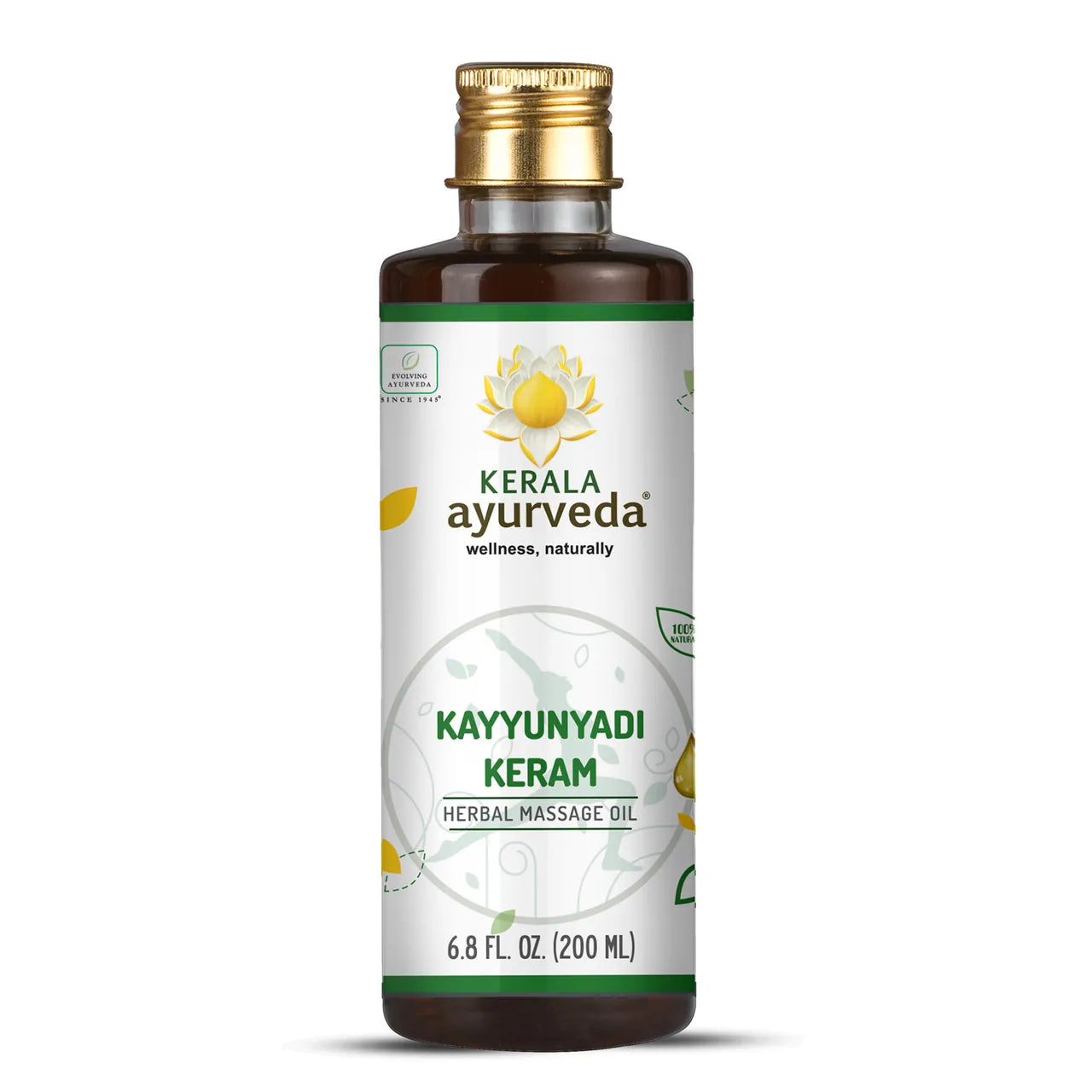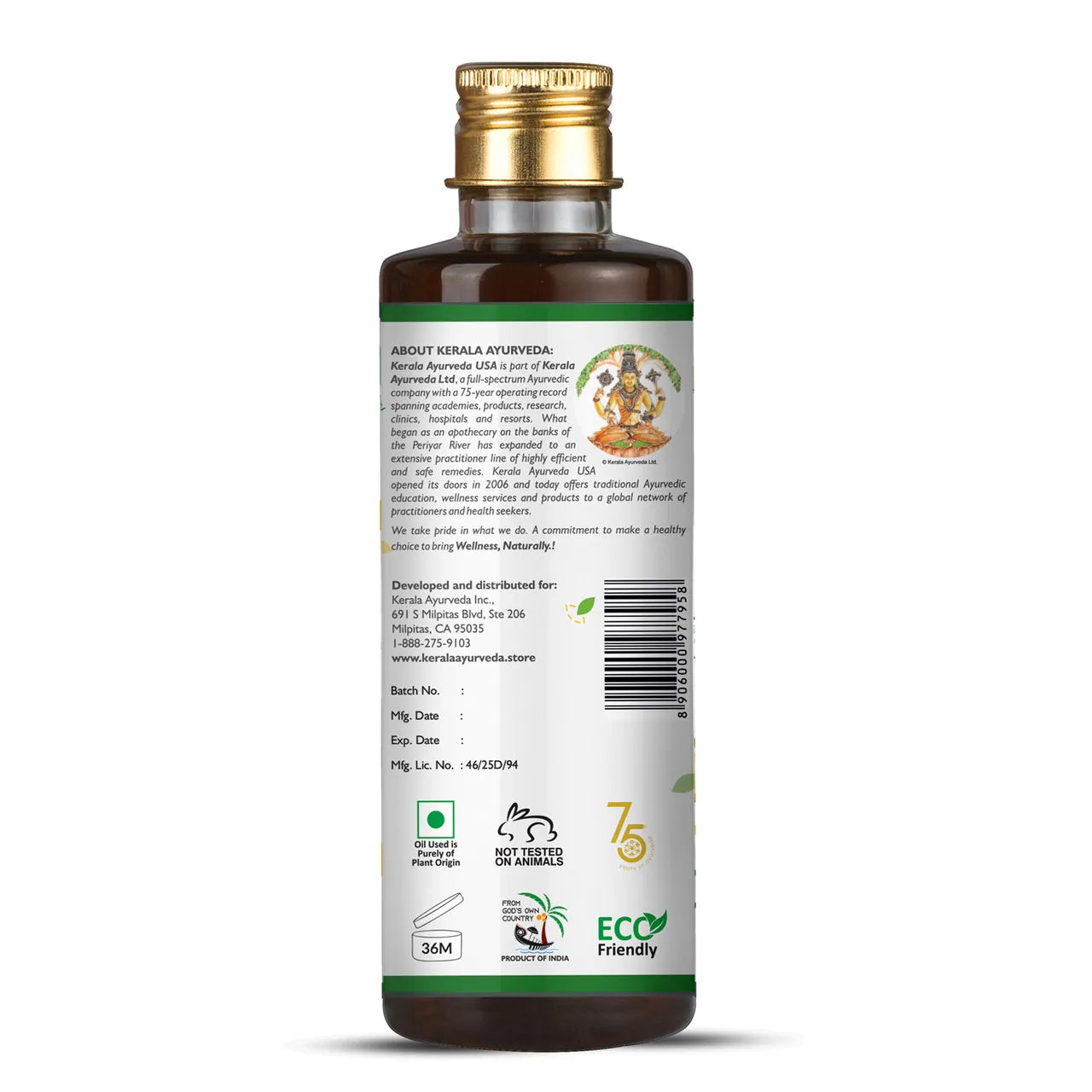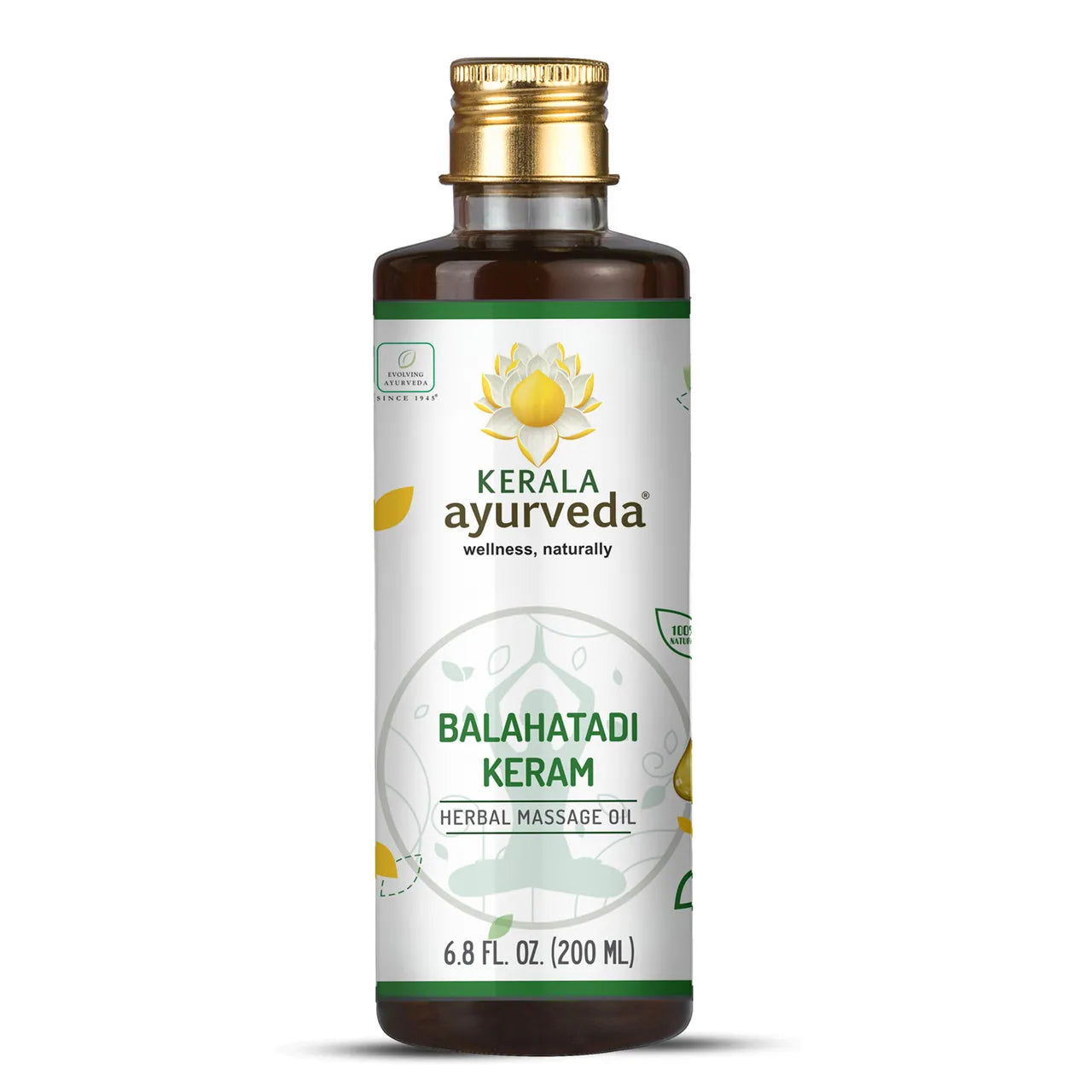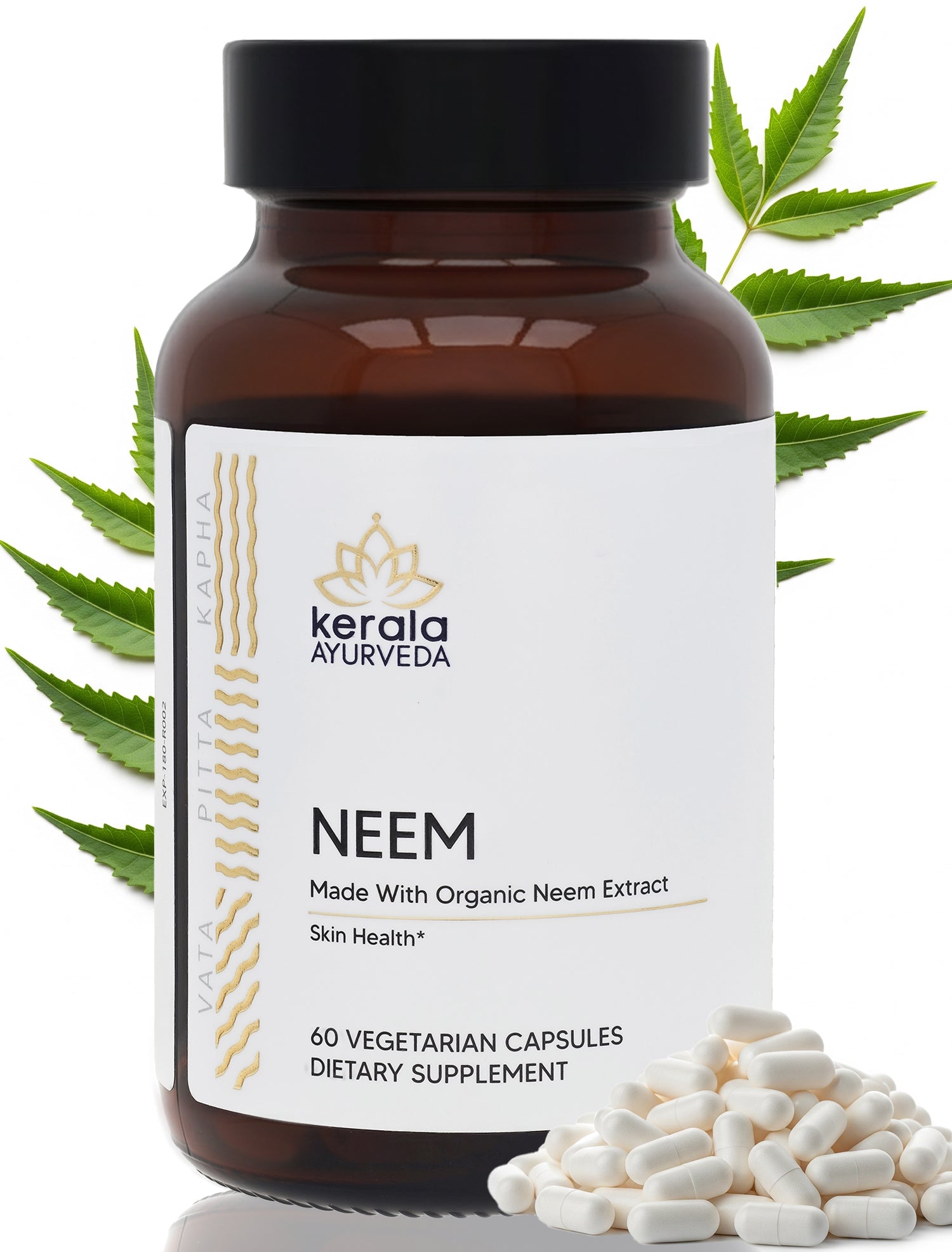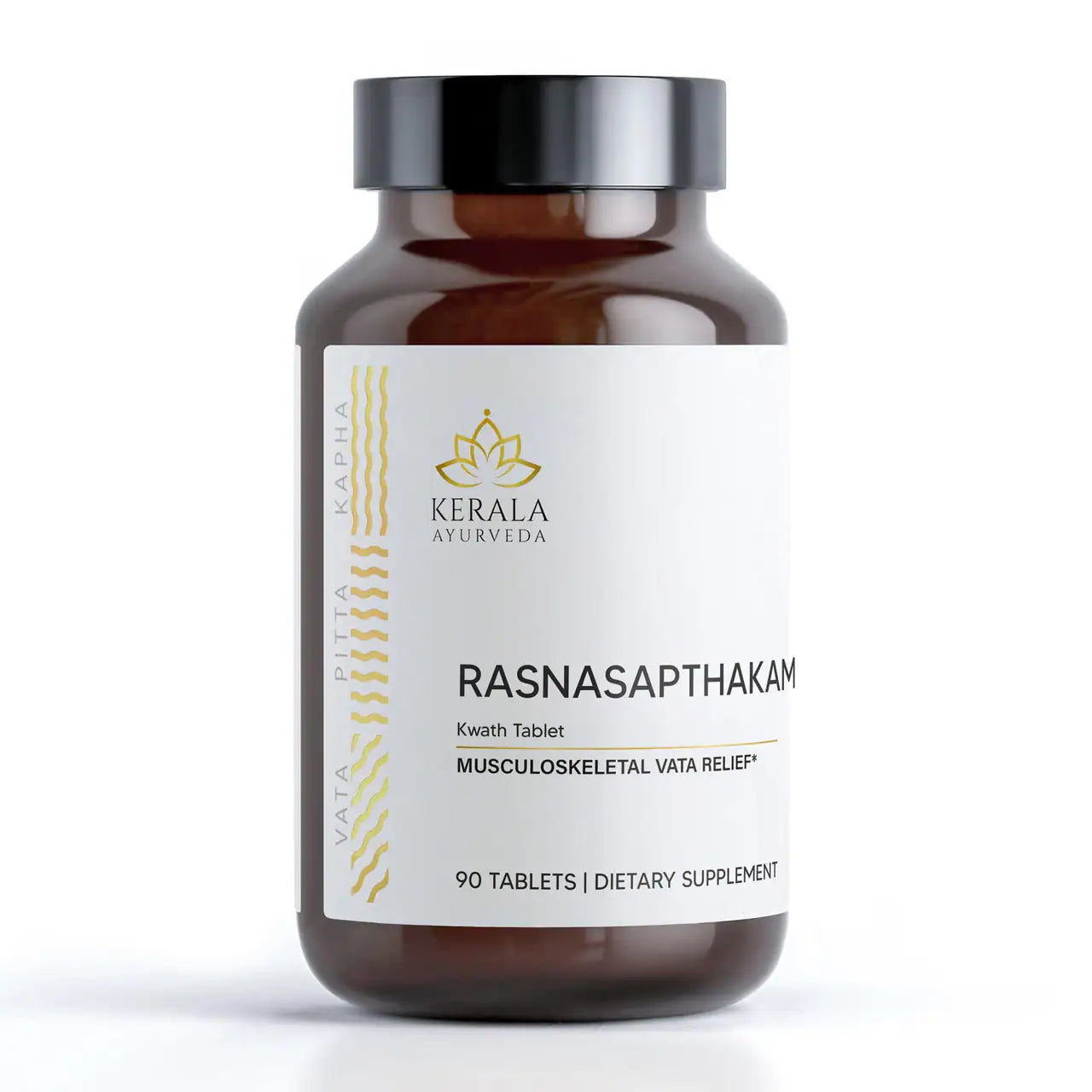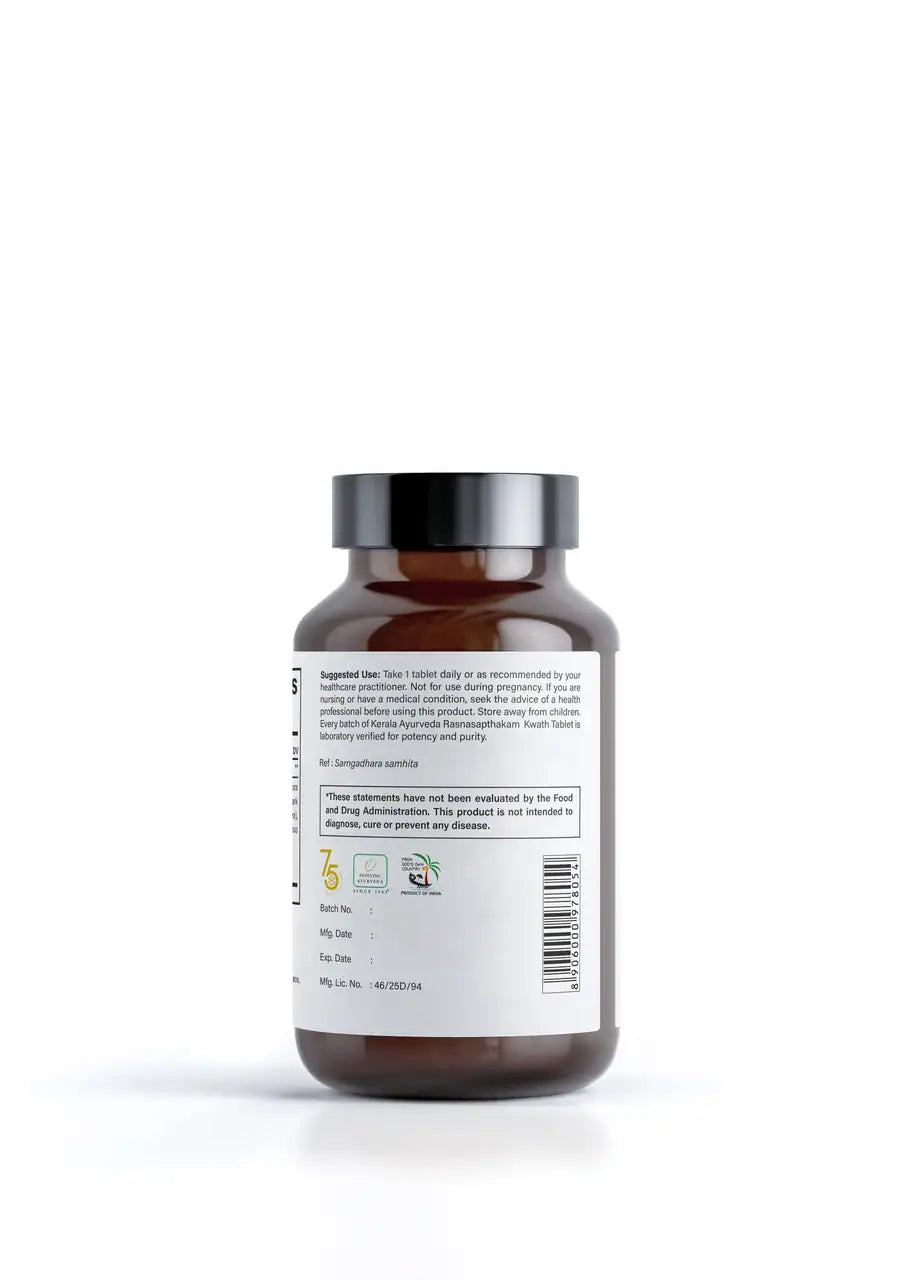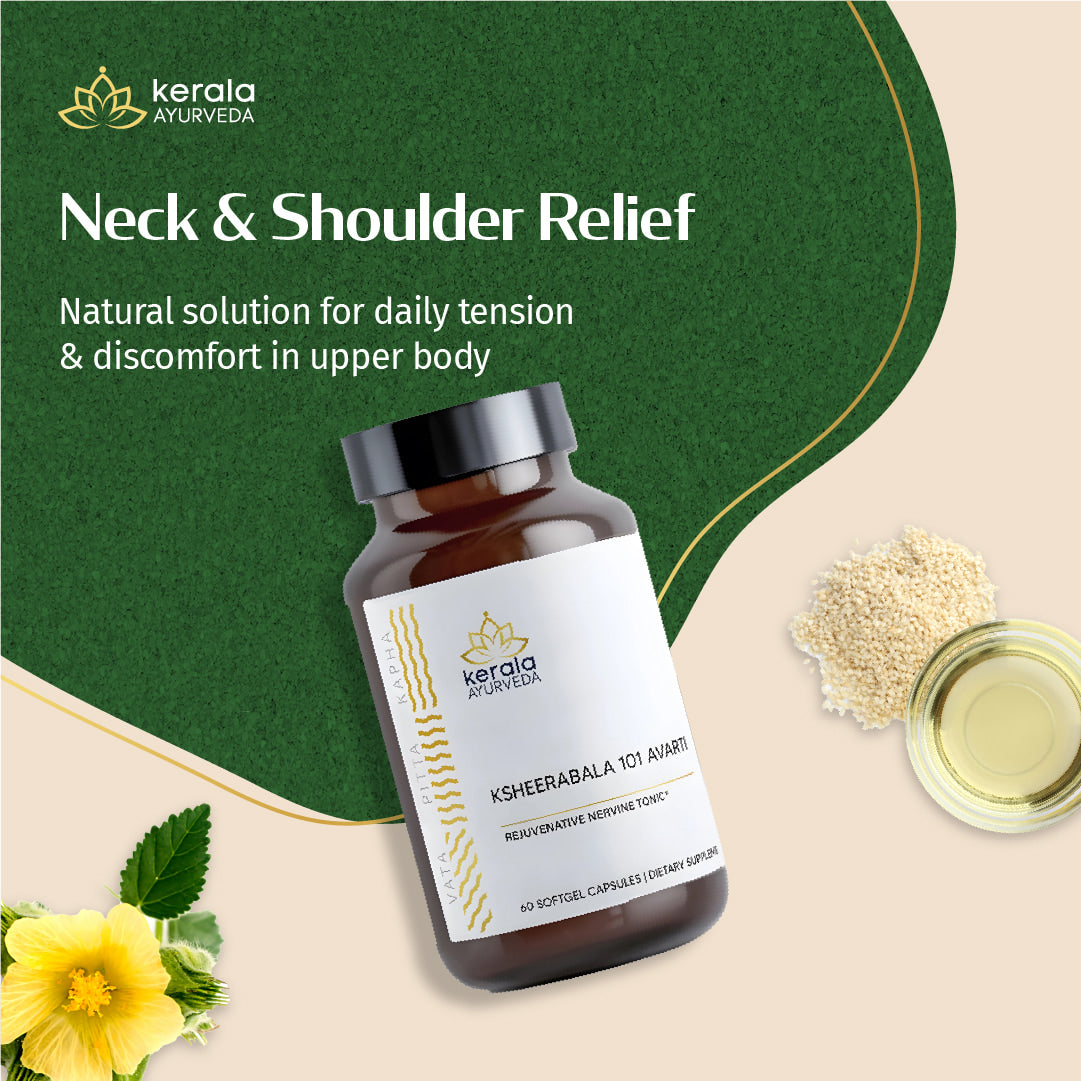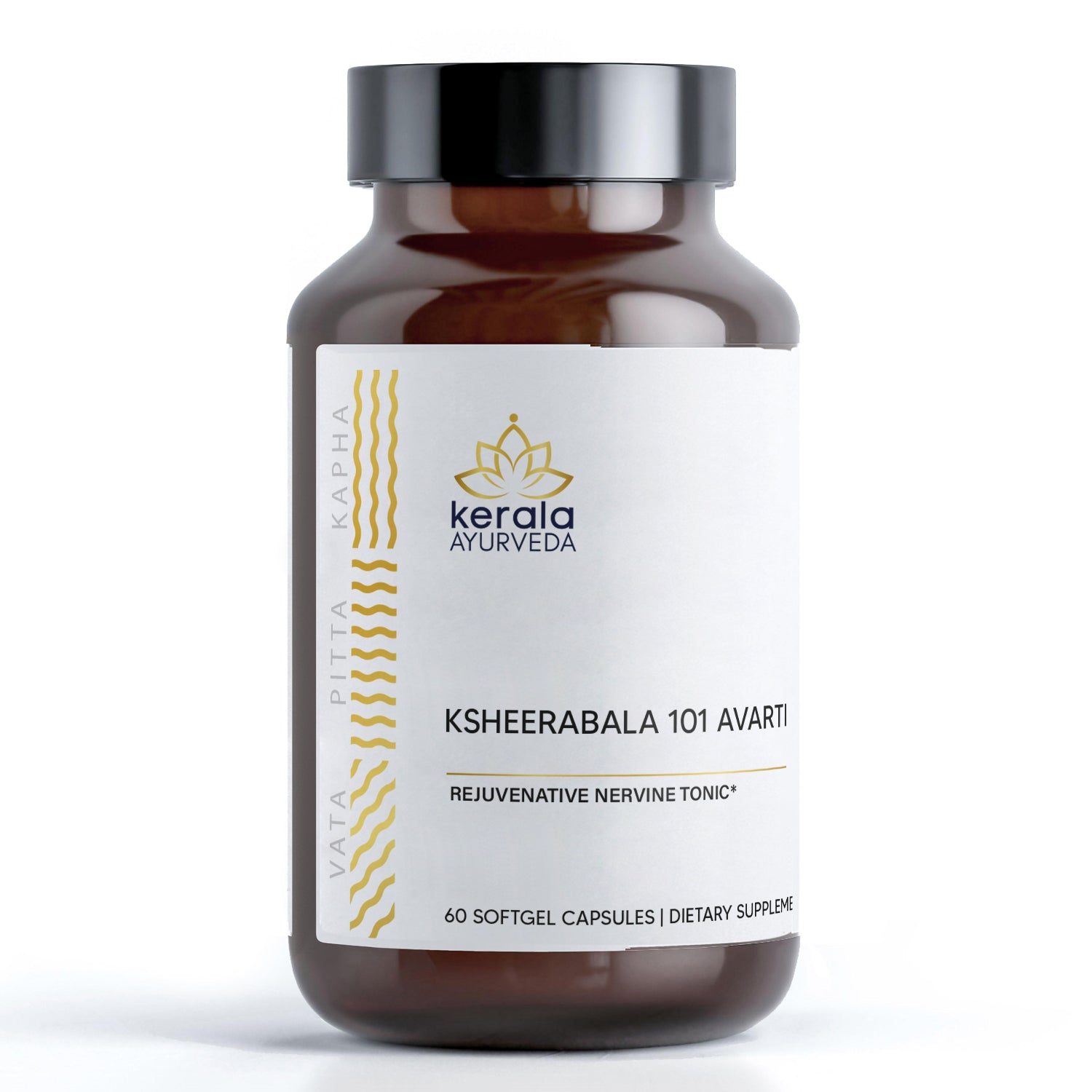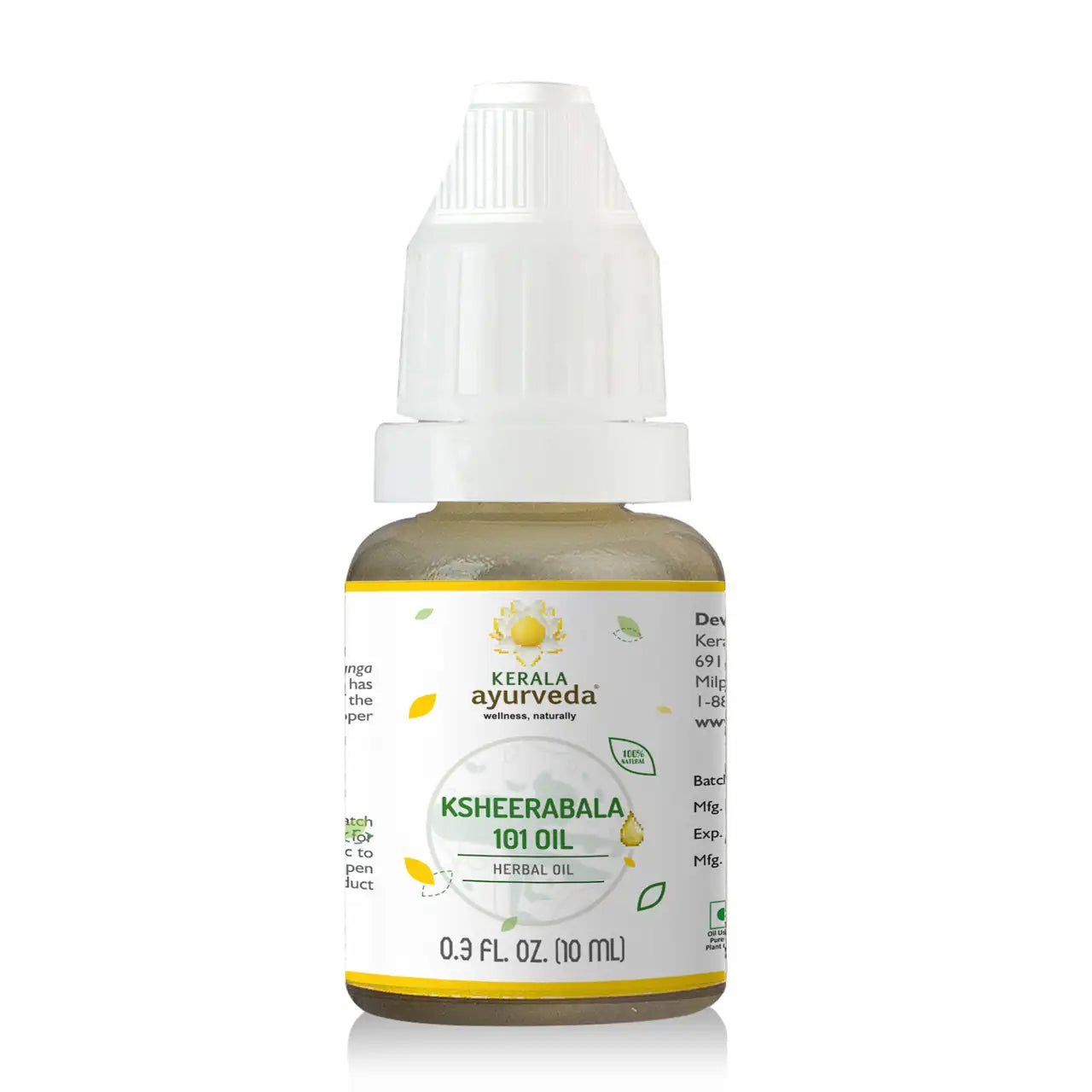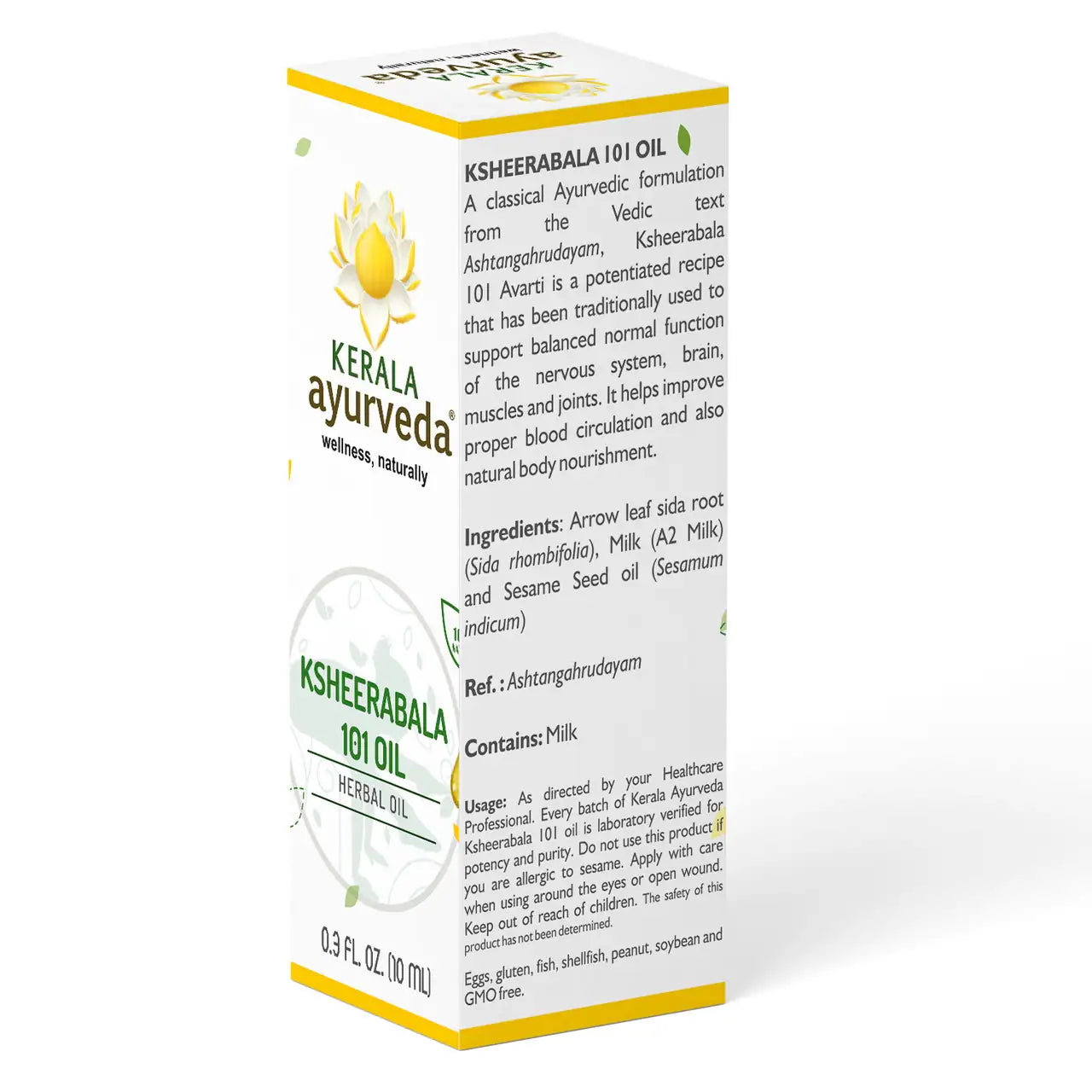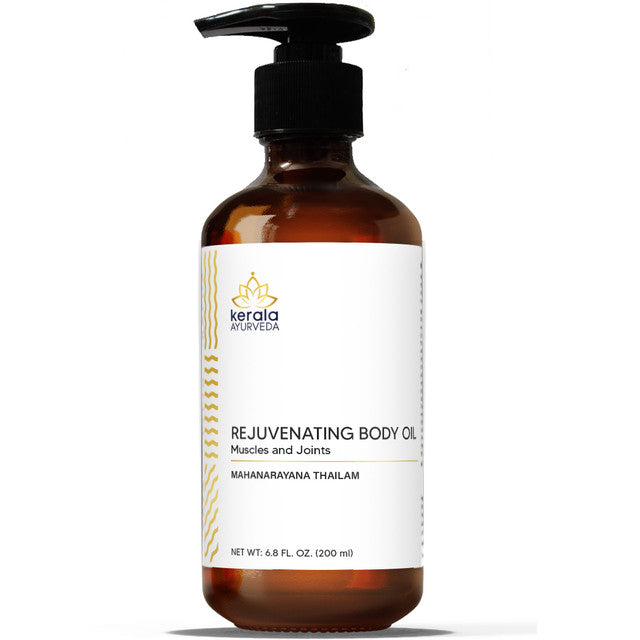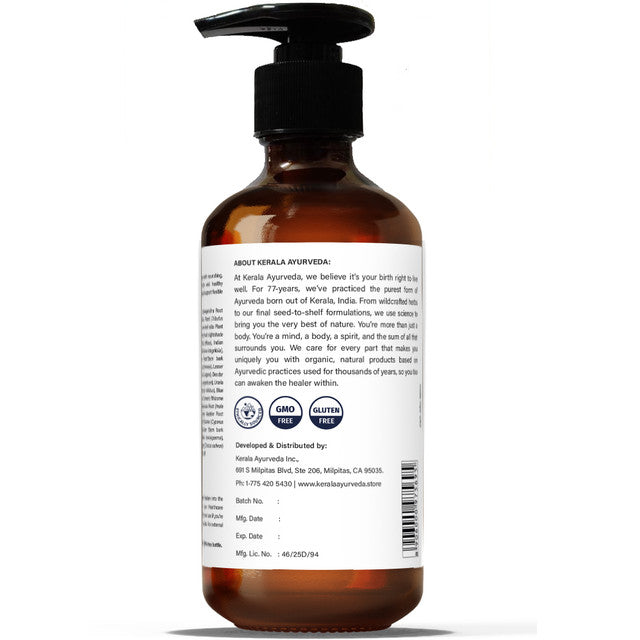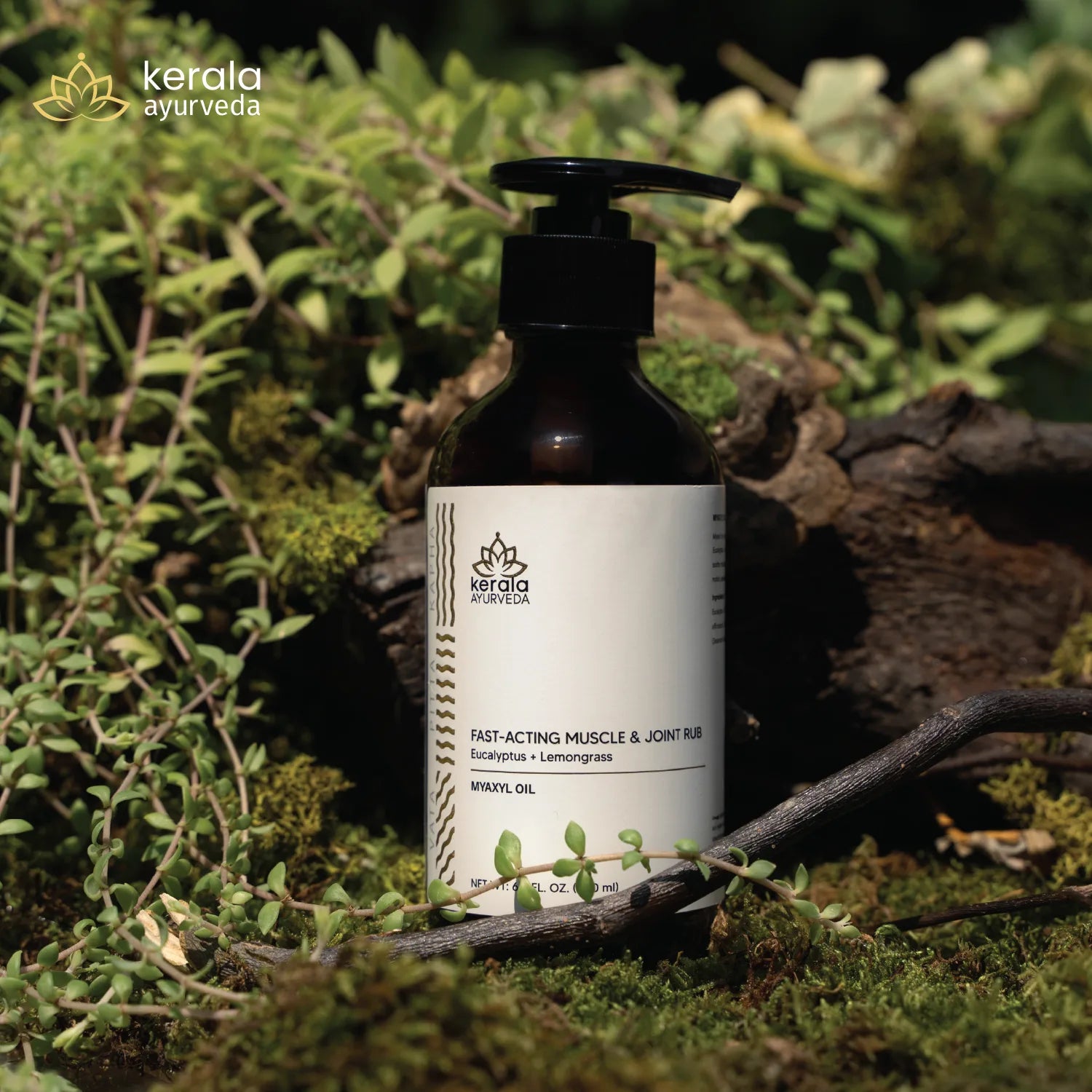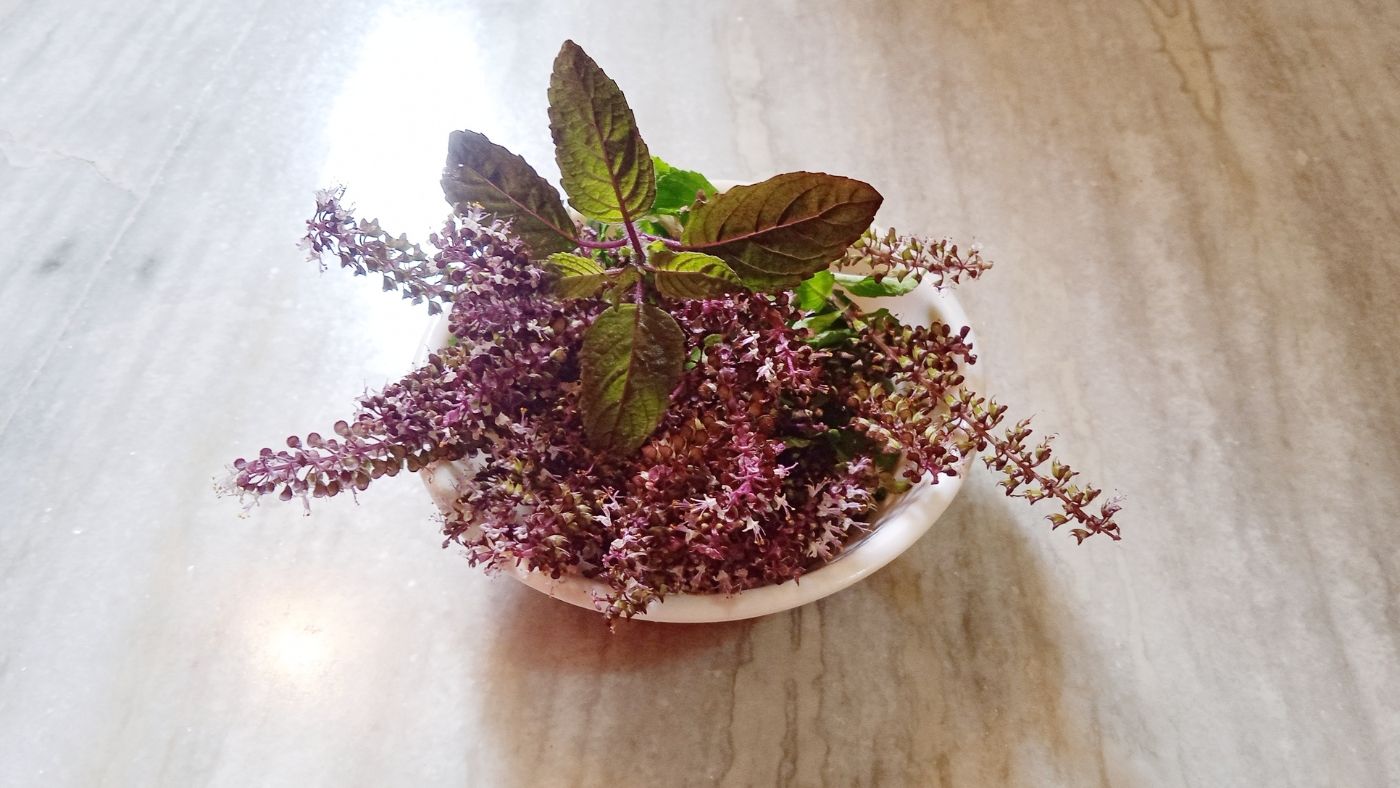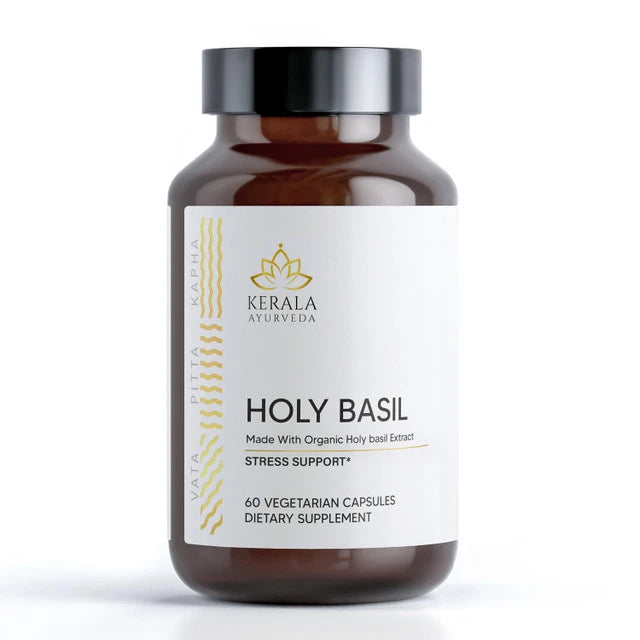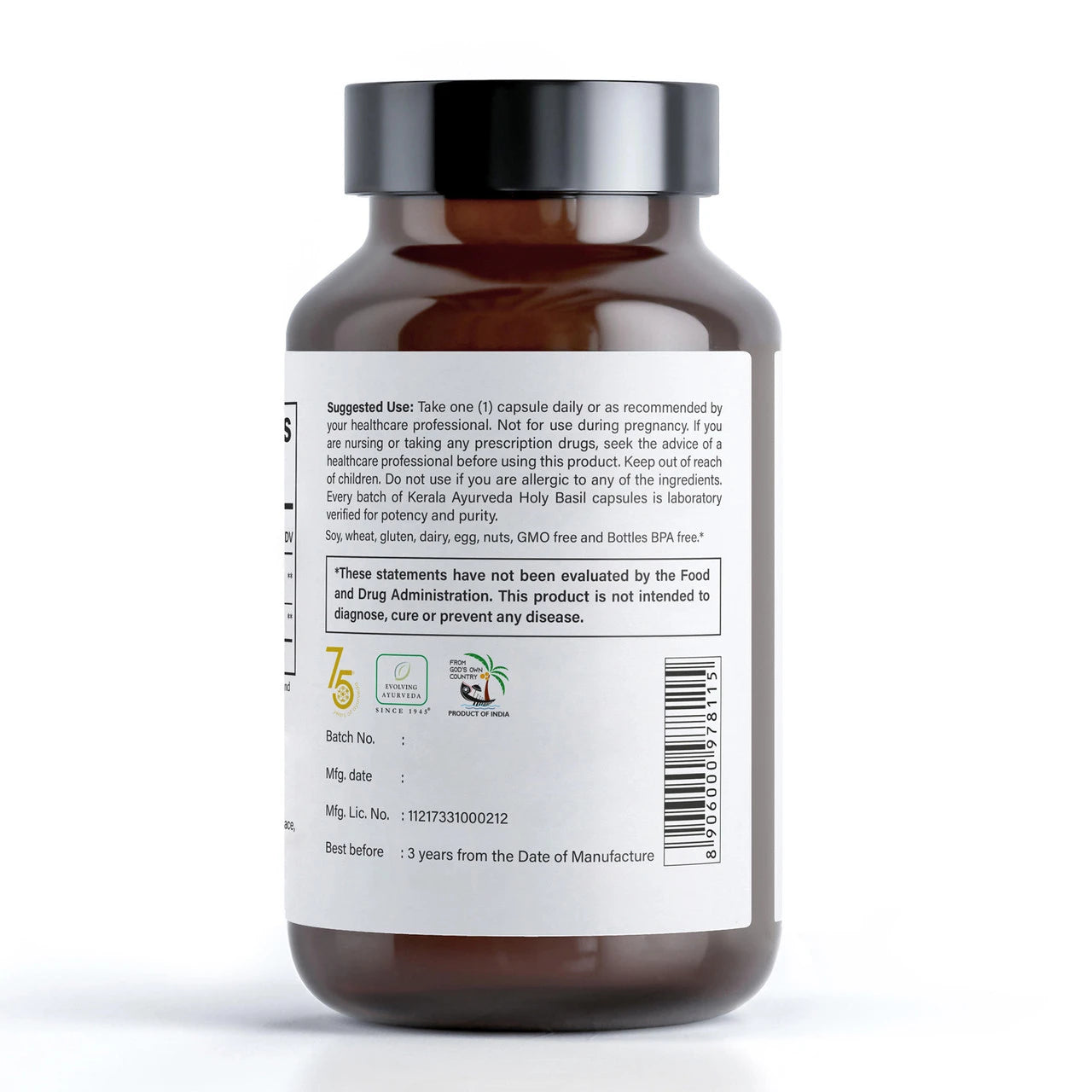Highlights
Stress has become an unwelcome companion in women's lives today, manifesting as physical tension, emotional overwhelm, and depleted energy reserves. When stress persists, it disrupts hormonal balance, compromises immune function, and creates a cascade of health concerns that affect every aspect of wellbeing.
Classical Ayurveda offers profound wisdom through Tulsi (Holy Basil), an extraordinary adaptogenic herb that has supported women's health for over 3,000 years. Modern research now validates what Ayurvedic practitioners have long understood: Tulsi possesses remarkable properties that help women navigate stress supporting natural balance to body and mind.
Understanding Tulsi in Ayurveda

Known as "The Queen of Herbs", Tulsi (Ocimum sanctum and Ocimum tenuiflorum) holds an unparalleled position in classical Ayurveda. This sacred plant is revered as "the elixir of life" and represents the perfect union of spiritual reverence and therapeutic power. In Ayurvedic wisdom, Tulsi is classified as a Rasayana (rejuvenative tonic), meaning it promotes longevity, enhances vitality, and supports the body's natural capacity to maintain balance amidst life's inevitable stressors.
The Ayurvedic term "Tulsi" derives from the word meaning "the incomparable one," reflecting its unique status among healing herbs. Classical Ayurvedic texts describe Tulsi as "The Mother Plant," recognizing its gentle yet profound ability to nurture and restore. Tulsi works holistically, addressing the root causes of imbalance while simultaneously supporting multiple body systems.
For women specifically, Tulsi offers particular benefits during times of hormonal transition, emotional stress, and physical demands. Its adaptogenic nature means it responds intelligently to individual needs, providing calming support when the nervous system is overstimulated while offering energizing qualities when vitality is depleted.
Ayurvedic Properties of Tulsi
Rasa (Taste): Katu (pungent) and Tikta (bitter)
Guna (Qualities): Laghu (light), Rooksha (dry), and Tikshna (penetrating)
Vipaka (Post-digestive effect): Katu (pungent)
Veerya (Potency): Ushna (heating)
Dosha Balance: Vatahara and Kaphahara (balances Vata and Kapha doshas), and Pitta Vardhini (increases Pitta dosha).
According to Ayurveda, these properties explain why Tulsi has been revered for supporting women (and men) through stress while requiring mindful use for those with Pitta constitution.
Two Primary Tastes: The Katu (pungent) taste immediately stimulates circulation and mental alertness and supports Agni (digestive strength). The Tikta (bitter) taste provides cleansing action, supporting liver function and helping process the accumulated toxins that build up when stress overwhelms natural detoxification pathways.
Three Qualities Working Together: Tulsi's Laghu (light) quality ensures easy digestion and absorption and helps prevent additional burden on an already taxed digestive system. The Rooksha (dry) quality supports heavy, damp conditions that accumulate when stress leads to emotional eating, sluggishness, or the stagnation that follows periods of intense stress. The Tikshna (penetrating) quality allows Tulsi's therapeutic compounds to reach deep into the body.
Heating Potency for Transformation: Tulsi's Ushna (heating) quality helps enhance Agni (digestive strength) and promote nutrient circulation.
Dosha-Specific Actions: Vatahara (Vata balancing), Tulsi specifically addresses anxiety, restlessness, insomnia, and scattered thinking that characterize Vata imbalance under stress. The herb's grounding and nourishing effects help rebuild depleted nervous system reserves.
As Kaphahara (Kapha balancing), Tulsi counters the lethargy, emotional heaviness, weight gain, and sluggish metabolism that can result when stress triggers Kapha accumulation. Its stimulating and drying qualities help mobilize stagnant energy.
Important Consideration for Pitta Constitution: Tulsi is Pitta Vardhini (increases Pitta dosha), which requires mindful application for women with strong Pitta constitution or imbalances like irritability, inflammation, or any heated condition. Tulsi is best used in smaller amounts, combined with cooling herbs, or avoided during peak Pitta times like summer or when pitta imbalance is present.
How Tulsi Supports Each Dosha

Tulsi's unique constitution allows it to benefit all three doshas while being particularly effective for stress-related imbalances:
Vata (Air Energy) Support For women with Vata predominance who experience anxiety, restlessness, and scattered thoughts under stress, Tulsi provides grounding and calming effects. Its warming nature counters Vata's cold quality, while its nourishing properties help rebuild depleted nervous system reserves. Tulsi's ability to improve sleep quality specifically addresses Vata's tendency toward insomnia and fitful rest.
Pitta (Fire Energy) Balance Women with Pitta constitution often respond to stress with irritability, perfectionism, and inflammatory conditions. While Tulsi has heating qualities, its bitter taste helps make it less heating. The herb's liver-supporting properties assist in processing the metabolic heat that stress generates, while its mood-stabilizing effects help manage Pitta's tendency toward anger and criticism. Those with Pitta aggravation use caution.
Kapha (Water Energy) Stimulation Kapha-predominant women may respond to stress by withdrawing, gaining weight, or experiencing emotional numbness. Tulsi's light, dry, and stimulating qualities help mobilize stagnant Kapha energy. Its ability to enhance metabolism and improve motivation directly addresses Kapha's tendency toward lethargy and emotional eating during stressful periods.
The Comprehensive Stress Relieving Benefits of Tulsi
Modern research confirms Tulsi's remarkable ability to address stress on multiple levels, making it an ideal ally for women facing complex life demands.
Cortisol Regulation and HPA Axis Support: Research demonstrates that Tulsi significantly reduces cortisol levels by up to 36 percent, providing powerful relief from the physical burden of chronic stress. The herb works by modulating the hypothalamic-pituitary-adrenal (HPA) axis, the body's primary stress response system. When this axis becomes overactive due to prolonged stress, it can lead to elevated cortisol, disrupted sleep patterns, and compromised immune function. Tulsi helps restore natural cortisol rhythms, allowing the body to respond appropriately to stressors without becoming stuck in chronic activation.
Neurotransmitter Balance: Studies show that Tulsi positively influences key neurotransmitters including serotonin and dopamine, which directly impact mood, motivation, and emotional resilience. Women experiencing stress often struggle with mood fluctuations, anxiety, and decreased motivation. Tulsi's ability to support healthy neurotransmitter function helps create emotional stability and mental clarity.
Cognitive Function and Memory Enhancement: Clinical trials reveal that Tulsi significantly improves cognitive flexibility, short-term memory, and attention span. One study of healthy young adults showed marked improvements in cognitive function after Tulsi supplementation, with participants demonstrating enhanced ability to focus and process information under stress.
Sleep Quality Improvement: Research indicates that Tulsi reduces sleep latency (time to fall asleep) by 42 percent and increases total sleep time by 35 percent in individuals with stress-related sleep disturbances. Quality sleep is essential for women's hormonal balance, emotional regulation, and physical recovery from daily stressors.
Metabolic Stress Relief: Tulsi helps normalize blood glucose levels, blood pressure, and lipid profiles, addressing the metabolic consequences of chronic stress. This is particularly important for women, as stress-induced metabolic dysfunction can contribute to weight gain, energy fluctuations, and increased risk of cardiovascular concerns.
How to Incorporate Tulsi into Your Daily Routine

The most effective approach to using Tulsi for stress management involves consistent daily practice rather than occasional use:
Morning Awakening Ritual: Begin each day by chewing 2 to 4 fresh Tulsi leaves on an empty stomach or prepare a warm cup of Tulsi tea using 1 teaspoon of dried leaves steeped for 5 to 10 minutes. This morning practice helps set a calm, centered tone for the day while supporting natural cortisol rhythms.
Midday Reset: During lunch or afternoon breaks, enjoy another cup of Tulsi tea to help manage work-related stress and maintain mental clarity. The herb's adaptogenic properties help buffer the body's response to daily challenges.
Evening Wind-Down: Prepare Tulsi tea or add a small amount of Tulsi powder to warm milk with a pinch of ghee one hour before bedtime. This practice helps transition the nervous system from daily activities to restorative sleep.
Stress-Response Protocol: For an easier protocol, standardized Tulsi capsules provide 500 mg per dose daily. Clinical studies support this dosage for significant stress reduction and improved sleep quality.
Seasonal Adjustments: Increase Tulsi dosage during Vata season (autumn and early winter) when stress tends to accumulate and reduce Tulsi dosage slightly during Pitta season (late spring and summer) if you have a strong Pitta constitution.
Quality and Purity You Can Trust

When selecting Tulsi products, quality and purity are paramount for therapeutic effectiveness. Kerala Ayurveda's Holy Basil represents the gold standard in Tulsi supplementation, offering standardized extracts that preserve the herb's full spectrum of active compounds including eugenol, ursolic acid, and rosmarinic acid.
Kerala Ayurveda sources their Tulsi from organic farms using traditional cultivation methods that honor the plant's sacred nature while ensuring maximum potency. Each batch undergoes rigorous testing for purity, potency, and the absence of contaminants, providing you with the confidence that you are receiving authentic, therapeutic-grade Tulsi.
The standardized extract format ensures consistent dosing and reliable effects, while the vegetarian capsules make daily supplementation convenient and practical for busy lifestyles. When combining this high-quality supplement with fresh Tulsi tea and whole plant preparations, you create a comprehensive approach to stress management that honors both traditional wisdom and modern convenience.
Important Considerations (Safety)
While Tulsi demonstrates an excellent safety profile in clinical studies, several important considerations ensure optimal use:
Pregnancy and Nursing Pregnant: and breastfeeding women should consult with qualified Ayurvedic practitioners before using Tulsi supplements, as traditional texts suggest caution during these special periods.
Blood Sugar Considerations: Tulsi may lower blood glucose levels, which is generally beneficial but requires monitoring for individuals already taking blood sugar regulating products. Work with a healthcare practitioner to adjust protocols as needed.
Blood Pressure Awareness: The herb's ability to support healthy blood pressure may enhance the effects of other blood pressure interventions, requiring professional guidance when considering to use Tulsi.
Quality Considerations: Use only high-quality, tested Tulsi products from reputable sources to ensure purity and avoid adulterated products that may contain harmful substitutes.
Embracing Holistic Wellness

Tulsi represents just one facet of classical Ayurveda's comprehensive approach to women's wellness and stress management. While this sacred herb provides powerful support for stress-related concerns, optimal health emerges from embracing Ayurveda's complete lifestyle wisdom including proper nutrition, adequate rest, regular movement, and supportive community connections.
For women seeking deeper understanding of how Ayurvedic principles can transform their relationship with stress and support vibrant health, Kerala Ayurveda's Wellness Center offers personalized consultations with experienced practitioners who can create individualized protocols addressing your unique constitution and life circumstances.
Through comprehensive assessment and ongoing guidance, you can learn to recognize your personal stress patterns, understand how different life phases affect your balance, and develop sustainable practices that support long-term wellness. This holistic approach ensures that Tulsi's remarkable benefits become part of a larger framework supporting your journey toward optimal health and vitality.
Classical Ayurveda teaches that true wellness emerges not from fighting against stress, but from developing the resilience and wisdom to navigate life's challenges with grace and strength. Tulsi has traditionally been used for millennia by Ayurveda and is now validated by modern research, this gentle yet powerful plant is an ally toward conscious living.

References:
- Cohen, M. M. (2014). Tulsi - Ocimum sanctum: An herb for all reasons. Journal of Ayurveda and Integrative Medicine, 5(4), 251-259.
- Lopresti, A. L., Smith, S. J., Metse, A. P., & Drummond, P. D. (2022). A randomized, double-blind, placebo-controlled trial investigating the effects of an Ocimum tenuiflorum (Holy Basil) extract on stress, mood, and sleep in adults experiencing stress. Frontiers in Nutrition, 9, 965130.
- Jamshidi, N., & Cohen, M. M. (2017). The clinical efficacy and safety of Tulsi in humans: A systematic review of the literature. Evidence-Based Complementary and Alternative Medicine, 2017, 9217567.




